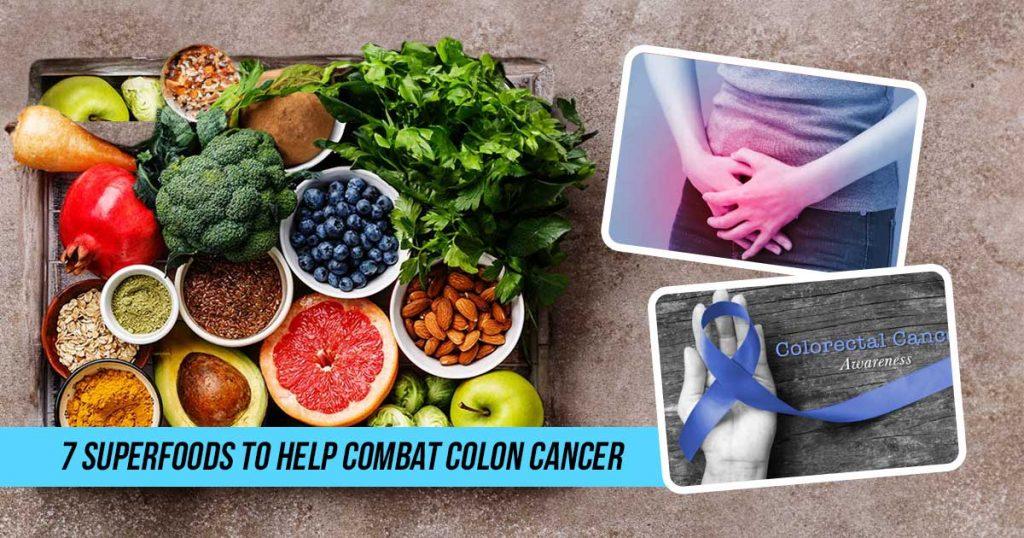When it comes to preventing and managing colon cancer, diet plays a powerful role. Certain foods, known as “superfoods,” are packed with nutrients and antioxidants that help the body defend against cancer cells. Incorporating these into your daily meals can strengthen your body’s natural defenses, making it more resilient in the fight against colon cancer.
What is Colon Cancer?
Colon cancer, also called colorectal cancer, begins in the large intestine (colon) or rectum. It usually starts from polyps, which are small, non-cancerous growths in the colon lining. If these polyps aren’t found and removed early, some can turn cancerous. Colon cancer is one of the most common types of cancer worldwide, but it is also very preventable and treatable if caught early.
Risk factors include age, genetics, and lifestyle choices. Eating a lot of red meat and processed foods while having a low-fiber diet can raise your risk. Luckily, making simple changes to your diet can help lower your chances of getting colon cancer or support treatment if you’ve already been diagnosed. Adding natural remedies, like certain superfoods, can also complement traditional treatments.
The Role of Diet in Colon Cancer Treatment
Dietary choices can have a significant impact on the progression and treatment of colon cancer. Certain foods have been shown to fight cancer cells and slow the growth of tumors. Here are five ways that diet can support colon cancer treatment:
High-fiber foods help to maintain digestive health and prevent constipation, which can reduce the risk of colon cancer.
Antioxidant-rich foods such as berries, nuts, and leafy greens, help protect cells from damage by free radicals, potentially slowing cancer development.
Omega-3 fatty acids, found in fish and seeds, have anti-inflammatory properties that may slow tumor growth.
Foods rich in sulforaphane, like broccoli and kale, contain compounds that fight cancer cells and reduce the risk of new growths.
Nutrient-dense foods such as beans, nuts, and leafy vegetables, support overall health, boosting the immune system and helping the body fight cancer more effectively.
Incorporating these foods can make a difference in how your body responds to colon cancer. But which food would you choose to possibly help protect against colon cancer? The answer lies in the superfoods known for their protective properties.
7 Superfoods That Help Fight Colon Cancer
Certain foods are packed with vitamins, minerals, and compounds that help your body fight cancer. Below are seven of the best foods for colon cancer patients, which may reduce cancer risk or slow its progression.
Berries
Berries like blueberries, strawberries, and raspberries are rich in antioxidants and fiber. The antioxidants, particularly anthocyanins, can help fight cancer cells by neutralizing harmful free radicals that damage cells. The high fiber content also aids in digestive health, reducing inflammation and promoting regular bowel movements, which are important in preventing colon cancer.
Beans and Legumes
Beans and legumes are excellent sources of fiber and protein. They also contain a variety of phytochemicals that may help inhibit the growth of cancer cells. Some studies suggest that regular consumption of beans can reduce the risk of colon cancer by improving gut health and lowering inflammation in the colon. Plus, their low glycemic index helps regulate blood sugar levels, which is beneficial in reducing cancer risks.
Carrots
Carrots are not only high in fiber but also rich in beta-carotene, a powerful antioxidant. Beta-carotene has been studied for its role in reducing the risk of several cancers, including colon cancer. The compound works by neutralizing harmful free radicals that can cause cell damage, potentially leading to cancer. Carrots also support overall gut health, making them an ideal choice for those looking to reduce their cancer risk.
Cruciferous Vegetables
Cruciferous vegetables like broccoli, cauliflower, and kale contain sulforaphane, a compound that has been shown to reduce the size and number of cancer cells in the colon. These vegetables are also high in fiber, which aids in digestion and keeps the colon healthy. Research suggests that eating cruciferous vegetables regularly can lower the risk of colon cancer and promote general gut health.
Nuts
Nuts such as almonds, walnuts, and pecans are high in healthy fats, antioxidants, and fiber, all of which are beneficial for colon health. They also contain phytochemicals that may help reduce inflammation and slow the growth of cancer cells.
Coffee
Coffee contains numerous compounds, such as caffeine and polyphenols, which have antioxidant properties. These compounds may help protect against cancer by reducing inflammation and protecting cells from damage. Moderate coffee consumption has been associated with a reduced risk of colon cancer, making it a surprising addition to the list of foods that help fight colon cancer.
Spinach
Spinach is packed with vitamins, minerals, and antioxidants like vitamin C and beta-carotene. These nutrients help protect cells from damage and promote overall gut health. Spinach also contains chlorophyll, which may help block the carcinogenic effects of substances in the body that can lead to cancer. Regularly consuming spinach is a great way to support your body’s natural defenses against colon cancer.
Adding Superfoods to Your Diet for Colon Cancer Prevention
Including these superfoods in your diet is a natural remedy for colon cancer and can make a significant difference in reducing your risk or supporting treatment. What foods help fight colon cancer? A diet rich in berries, nuts, beans, leafy greens, and cruciferous vegetables, along with moderate coffee consumption, can offer powerful benefits. The best food for colon cancer patients is one that is nutrient-dense, high in fiber, and packed with cancer-fighting compounds.
This preventive approach, combined with proper medical care, can provide a solid defense against this disease. Consider starting your day with a nutrient-packed smoothie, snack on nuts and berries, or add a serving of broccoli to your meals to give your body the boost it needs.
